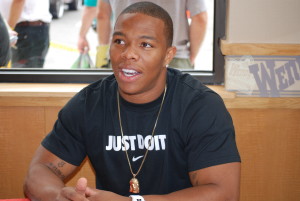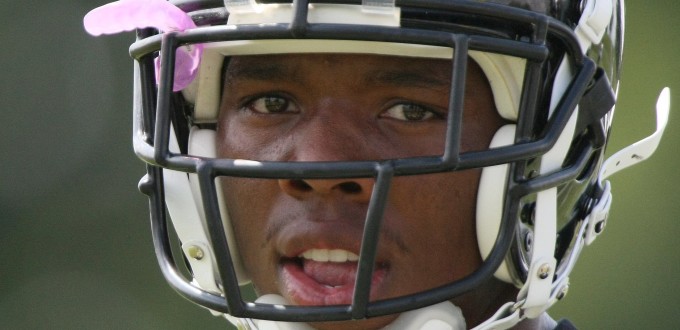
Professional athletes share an exclusive place in society with their celebrity contemporaries, a place characterized by excessive wealth and privilege. The public maintains the perception that money is, in fact, buying these athletes’ happiness. With multi-million dollar contracts weighing down their pockets as they go about their extravagant lifestyles, professional athletes are often considered to be untouchable heroes.
While some spend their money on extravagant estates and Lamborghinis, let us not fail to recognize the lost but not forgotten few, who instead decide to spend their share of millions posting bail and paying off court-ordered fines for their small or large scale crimes. These athletes often feel as though they are above the law due to their social status and media portrayal. Because of this, society is witnessing successful professional athletes’ fall from grace while they attempt to skirt the repercussions of their actions and salvage what is left of their reputation. This now leads us, as Stone Ridge girls with a sense of what is right and just, to question the way in which society unequally treats those admired by the public eye.
In the more recent months, Ray Rice, an NFL running back for the Baltimore Ravens, has fallen from grace after the release of a cringe-worthy video in which he punches his fiancée, now wife, Janay, in the face during an altercation in an elevator at the Revel Casino in Atlantic City. After being suspended for two games and later released from his contract indefinitely from the Baltimore Ravens, Rice’s case and the way in which the NFL addressed it raises serious questions by women and men alike regarding the extent to which Rice was rightfully held accountable for his violent actions. The final outcome? Rice’s suspension was lifted on November 28, 2014, after he appealed to be reinstated into the NFL.
After Ray Rice’s case, the movement to end domestic violence has gained an even greater momentum. Stone Ridge girls are witnessing public downfall such as his, watching with a keen eye for speculation in such cases as Ray Rice. We are now asking if athletes are receiving special judicial treatment as a result of their celebrity status. Is the media’s portrayal of these athletes influencing the way in which society exempts them from their abusive and, in some cases, deadly behavior?
The Stone Ridge Feminism Club, led by Nora Gosselin ‘15, Pamela Lawrence ‘15, Amanda Grolig ‘15, and McKenzie Barnes ‘15, hosts and facilitates discussions every Friday afternoon on vital issues such as domestic violence. The Ray Rice case was a hot-button issue that “warranted much attention at the club’s weekly meetings as well as in our everyday classes,” according to Pamela.
Nora recognized the advantageous position of celebrities and professional athletes alike in society noting, “the large allowance for the poor actions of professional athletes and celebrities alike to be swept under the rug [is] due to their talents and respective media portrayal.” Elucidating her point further, all the club members, specifically Amanda, recognized the “trivialization of such cases in the media.”
Building on Nora’s point, McKenzie believes that, “Celebrities and athletes do not have to immediately face the fallouts of their violent actions as they receive an undeserved leeway due to their public influence. In general, the public does not want to witness a public figure’s fall from grace.” Approaching the case with a skepticism directed towards the NFL, McKenzie expressed that “the NFL did not handle the case appropriately and instead tried to avoid scandal as oppose to address the case as domestic violence. he NFL essentially sanctioned his actions.”
Feminism Club members came to a consensus that societal roles of these professional athletes were viewed as gossip instead of as serious crimes. McKenzie noted, “Society feels the need to weigh-in on these cases although the public is typically at a loss of full understanding for the situation.” Building on this, Pamela poignantly stated, “We are dealing with celebrities as public property… as we attempt to decide what they did [was] right or wrong, we are forgetting that they are real humans [sic] who partook in extremely unacceptable doings [sic], not just public figures whose malpractices can be taken lightly due to their celebrity status.”
However distant they may seem, cases such as that of Ray Rice are issues that warrant our immediate concern. The way in which the media portrays high-profile domestic violence cases, such as Ray Rice’s, directly impacts the severity in which society treats like situations. Yet generally, as everyday people, we do not have the access to world-class attorneys, lawyers, and PR representatives that celebrities and professional athletes do. Our hands will not be held along the way and we will most certainly not be given special treatment for the injustices we impose on society. As a people working towards social justice and equality, we, as Stone Ridge leaders, must be mindful that although they may be beloved public figures, celebrities and professional athletes must face the proper repercussions for their actions.

Leave a Reply